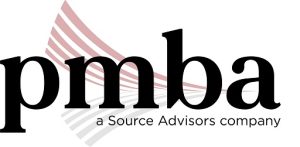When our experts assist a start-up business with sales tax compliance requirements or help a large company with a complicated sales & use tax audit, they often discover a lack of operational processes in place to avoid sales & use tax overpayments on purchases. Properly collecting and remitting sales tax should be the number one priority when allocating internal resources to sales tax issues. If it isn’t addressed, the sales tax liability can potentially transfer from the customer to the company. However, 6 out of 10 of our clients overpay more in sales tax on purchases than they under collect from customers. By identifying overpayments, 60% of our clients’ sales & use tax audits become net refunds and not net assessments.
Top 3 Reasons for Sales Tax Overpayments:
- Vendor Self-Preservation: The first hurdle to prevent overpayments of sales tax on your purchases is to understand that most vendors live by the motto “when in doubt – tax it.” When a vendor is faced with a transaction that may be exempt, they often shift the burden of proof to the buyer. For example, if you (the buyer) are making renovations to your corporate offices that could qualify as an improvement to real property and exempt from sales tax, the contractor may only treat the transaction properly if they receive a completed certificate of exempt use or capital improvement certificate (Form ST-124 in New York). If the form is not received, they may charge sales tax. Another example could involve the electronic delivery of software. A handful of states exempt the electronic delivery of software. However, when a company purchases software, the vendor has no requirement to confirm how it will be delivered or in which state it will be used. In many cases, all the licenses will be assumed to be delivered and taxed in one state. For companies in states such as New York, Texas, and Massachusetts, this will result in a significant overpayment on your software purchases.
- Improper Use of Technology Solutions: There are several options available to help companies ensure that they properly assess use tax on their purchases. However, in most cases, these technology solutions do not assist with identifying overpayments. We often find a large increase in overpayments during the first two years of a use tax implementation. The spike is due to the software’s inability to remove the largest factor when it comes to data entry errors – human interaction. For example, assume you have separately mapped your general ledger codes for hardware maintenance (taxable in most states) and software maintenance (exempt in many states). In many cases, these items are being purchased together. If the accounts payable team is unprepared or unwilling to enter separate transactions, then their likely reaction will be, “when in doubt – tax it!” Even though we strongly encourage our clients to implement use tax solutions when possible, we also advocate for annual reviews to ensure large overpayments don’t occur.
 Fear of Underpayments: Many companies have been through the painful process of a large, unexpected sales tax audit assessment. Whether the reason was a lack of customer exemption certificates, an error in the taxability matrix, or an oversight of a changed state tax law, someone was to blame. Post-audit assessment triage involves putting processes in place to make sure this never happens again. Many times the result is significant overpayments. We understand the pain of large sales tax audit assessments. In a few rare cases, sales tax audits have driven smaller companies to the brink of bankruptcy. However, in most cases, when our clients made large underpayments, the reason was the inability to correctly collect tax from their customers and not the underpayment of sales tax on purchases. Our clients that need help with sales tax audit assessments are amazed when we identify overpayments and apply the refunds directly toward the underpayments.
Fear of Underpayments: Many companies have been through the painful process of a large, unexpected sales tax audit assessment. Whether the reason was a lack of customer exemption certificates, an error in the taxability matrix, or an oversight of a changed state tax law, someone was to blame. Post-audit assessment triage involves putting processes in place to make sure this never happens again. Many times the result is significant overpayments. We understand the pain of large sales tax audit assessments. In a few rare cases, sales tax audits have driven smaller companies to the brink of bankruptcy. However, in most cases, when our clients made large underpayments, the reason was the inability to correctly collect tax from their customers and not the underpayment of sales tax on purchases. Our clients that need help with sales tax audit assessments are amazed when we identify overpayments and apply the refunds directly toward the underpayments.
Sales Tax Recovery
Your company will never completely eliminate sales & use tax overpayments. The best practice is to review your sales & use tax policies and procedures periodically. It is possible to perform these reviews internally; however, many companies with a multi-state footprint choose to utilize outside sales and use tax consultants with experience successfully securing sales & use tax refunds from state agencies.
